Презентація на тему «Ecotourism in Greece»
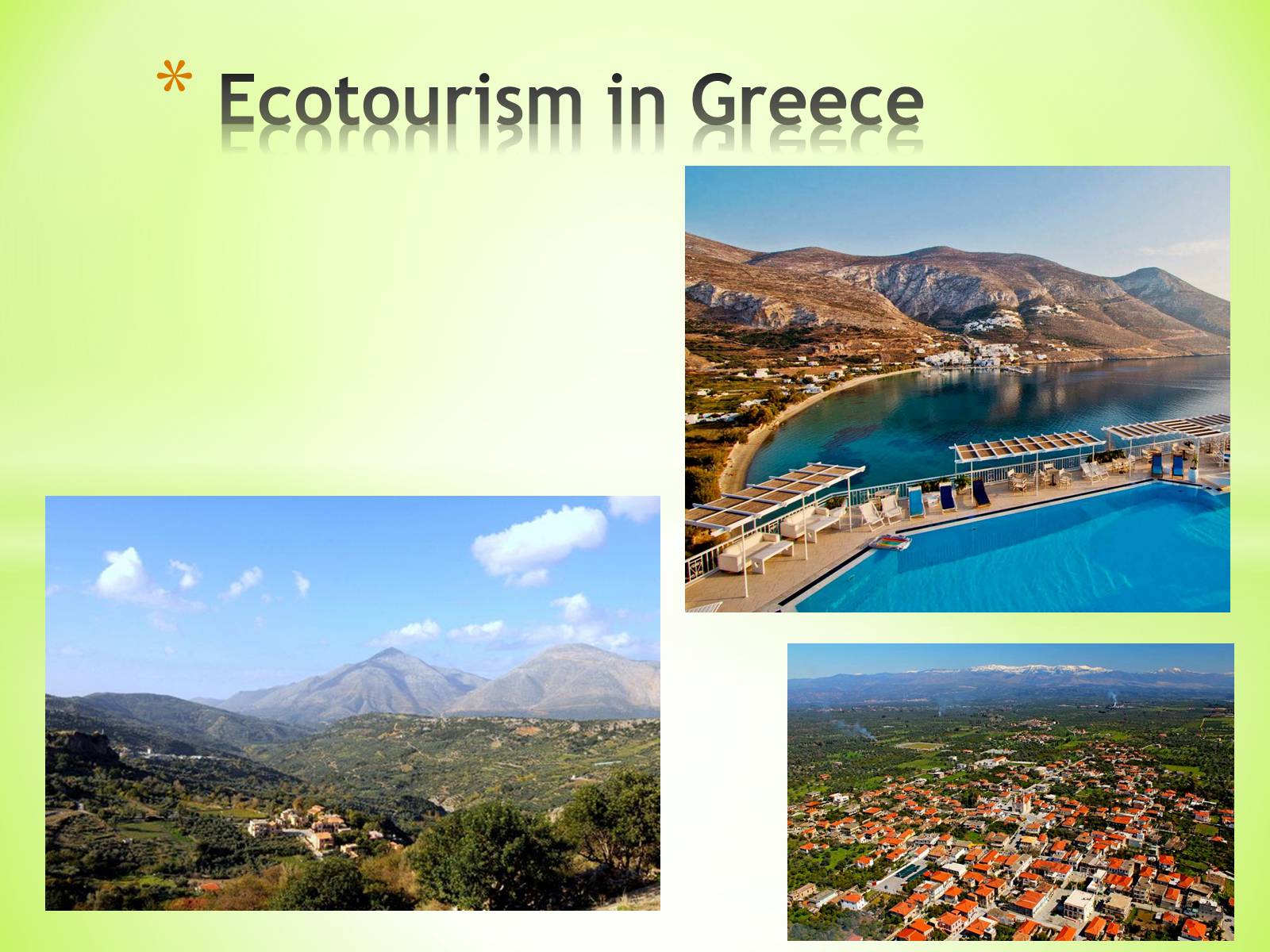
Ecotourism in Greece
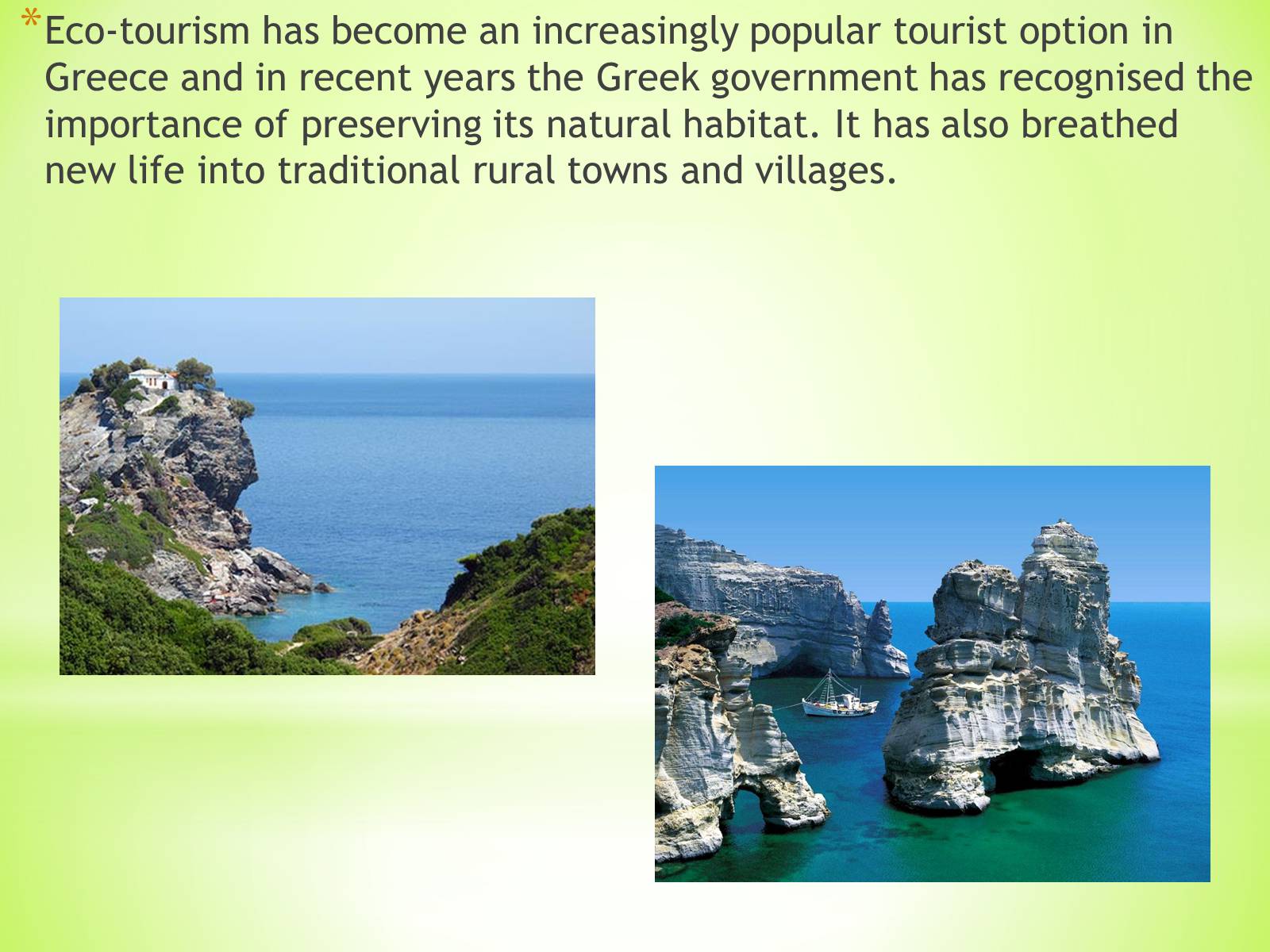
Eco-tourism has become an increasingly popular tourist option in Greece and in recent years the Greek government has recognised the importance of preserving its natural habitat. It has also breathed new life into traditional rural towns and villages.
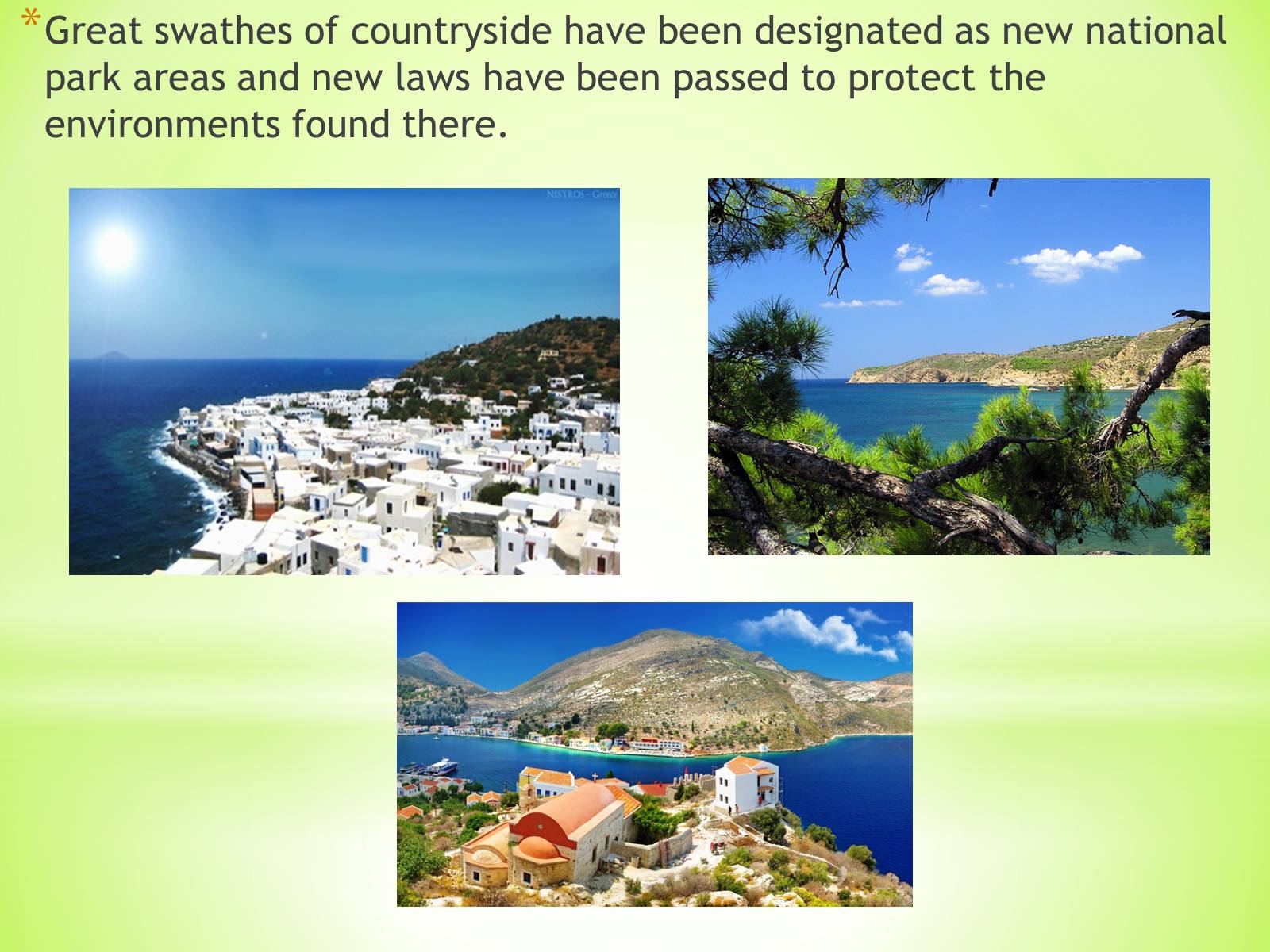
Great swathes of countryside have been designated as new national park areas and new laws have been passed to protect the environments found there.
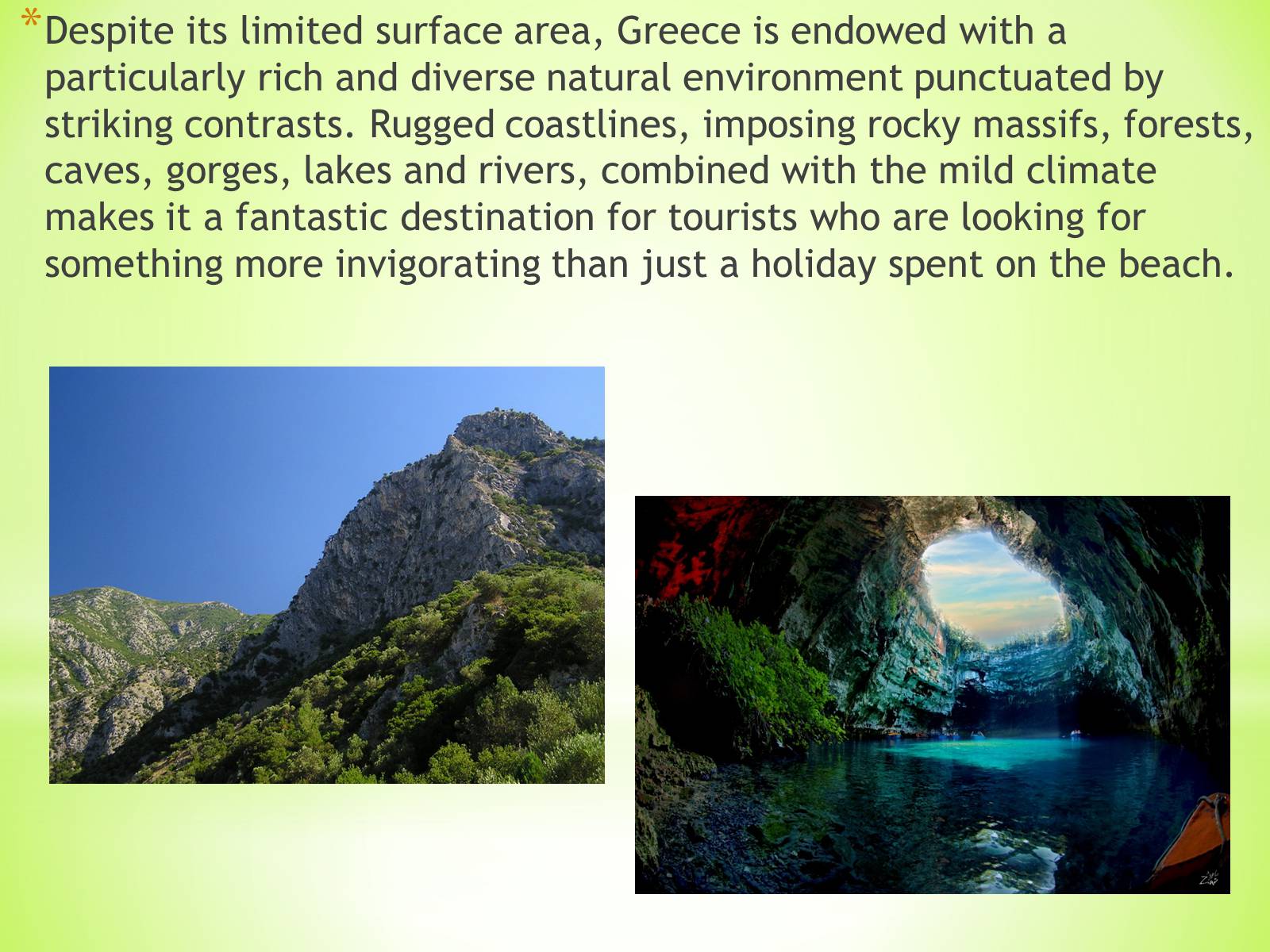
Despite its limited surface area, Greece is endowed with a particularly rich and diverse natural environment punctuated by striking contrasts. Rugged coastlines, imposing rocky massifs, forests, caves, gorges, lakes and rivers, combined with the mild climate makes it a fantastic destination for tourists who are looking for something more invigorating than just a holiday spent on the beach.
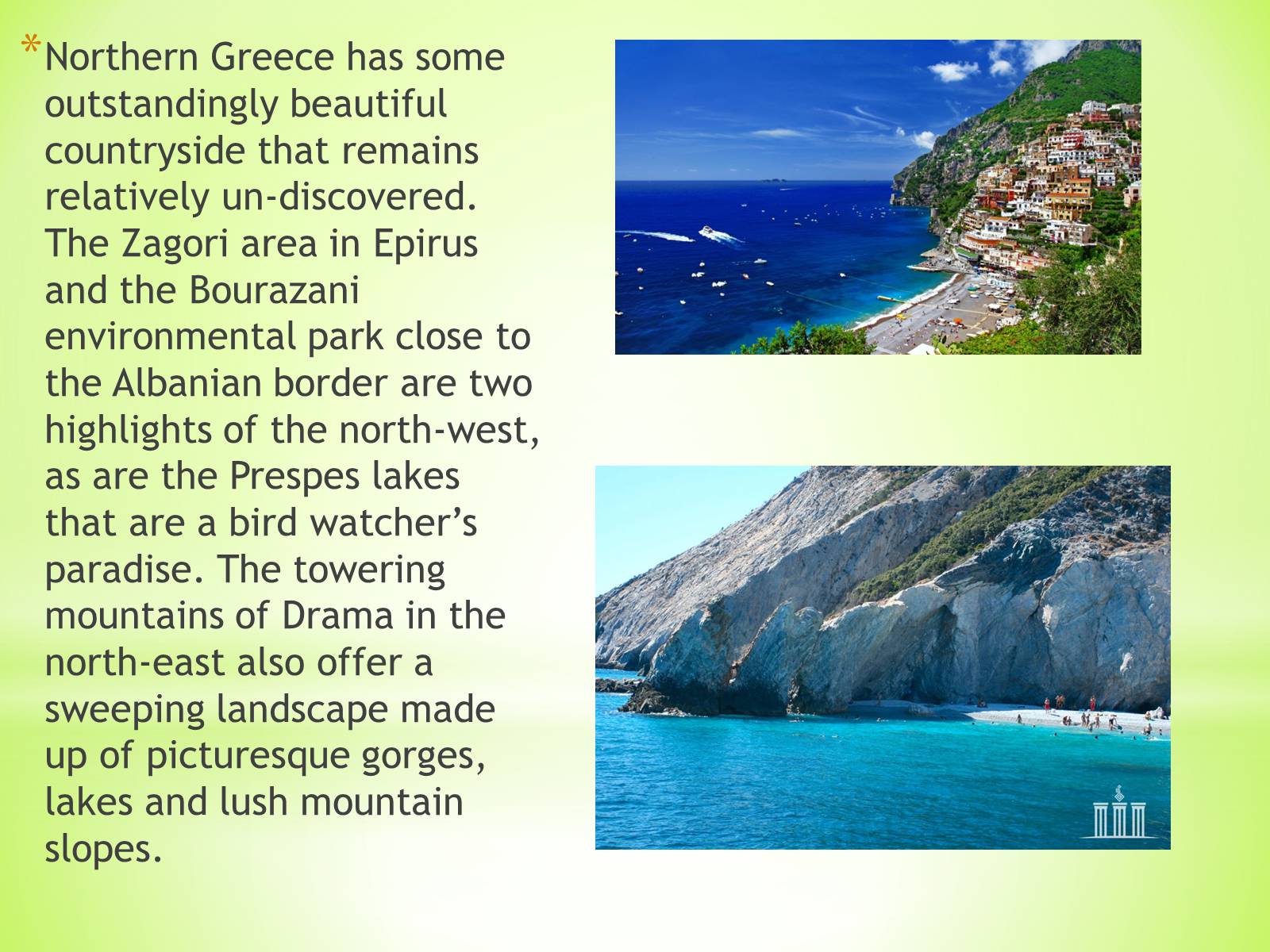
Northern Greece has some outstandingly beautiful countryside that remains relatively un-discovered. The Zagori area in Epirus and the Bourazani environmental park close to the Albanian border are two highlights of the north-west, as are the Prespes lakes that are a bird watcher's paradise. The towering mountains of Drama in the north-east also offer a sweeping landscape made up of picturesque gorges, lakes and lush mountain slopes.
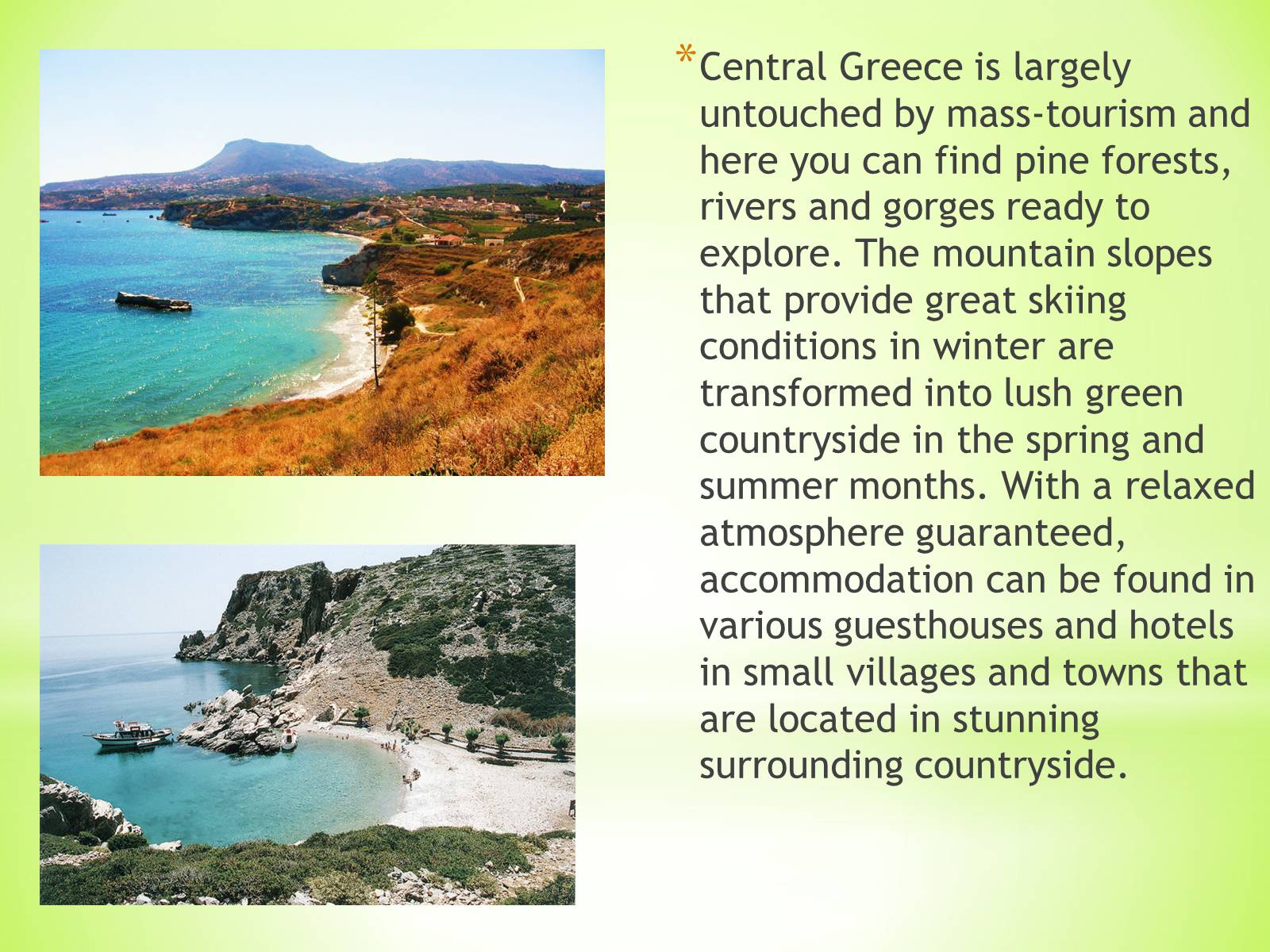
Central Greece is largely untouched by mass-tourism and here you can find pine forests, rivers and gorges ready to explore. The mountain slopes that provide great skiing conditions in winter are transformed into lush green countryside in the spring and summer months. With a relaxed atmosphere guaranteed, accommodation can be found in various guesthouses and hotels in small villages and towns that are located in stunning surrounding countryside.
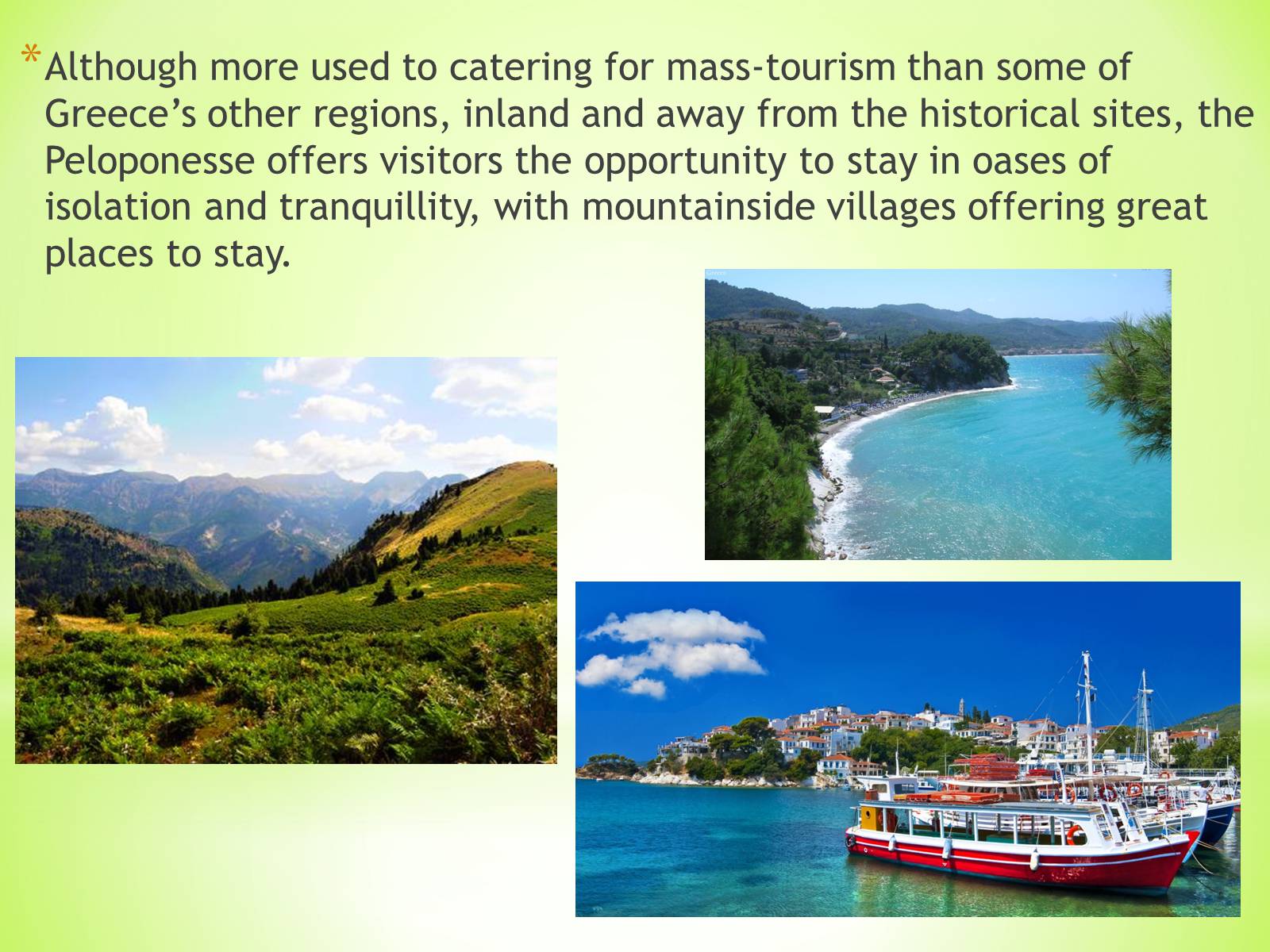
Although more used to catering for mass-tourism than some of Greece's other regions, inland and away from the historical sites, the Peloponesse offers visitors the opportunity to stay in oases of isolation and tranquillity, with mountainside villages offering great places to stay.
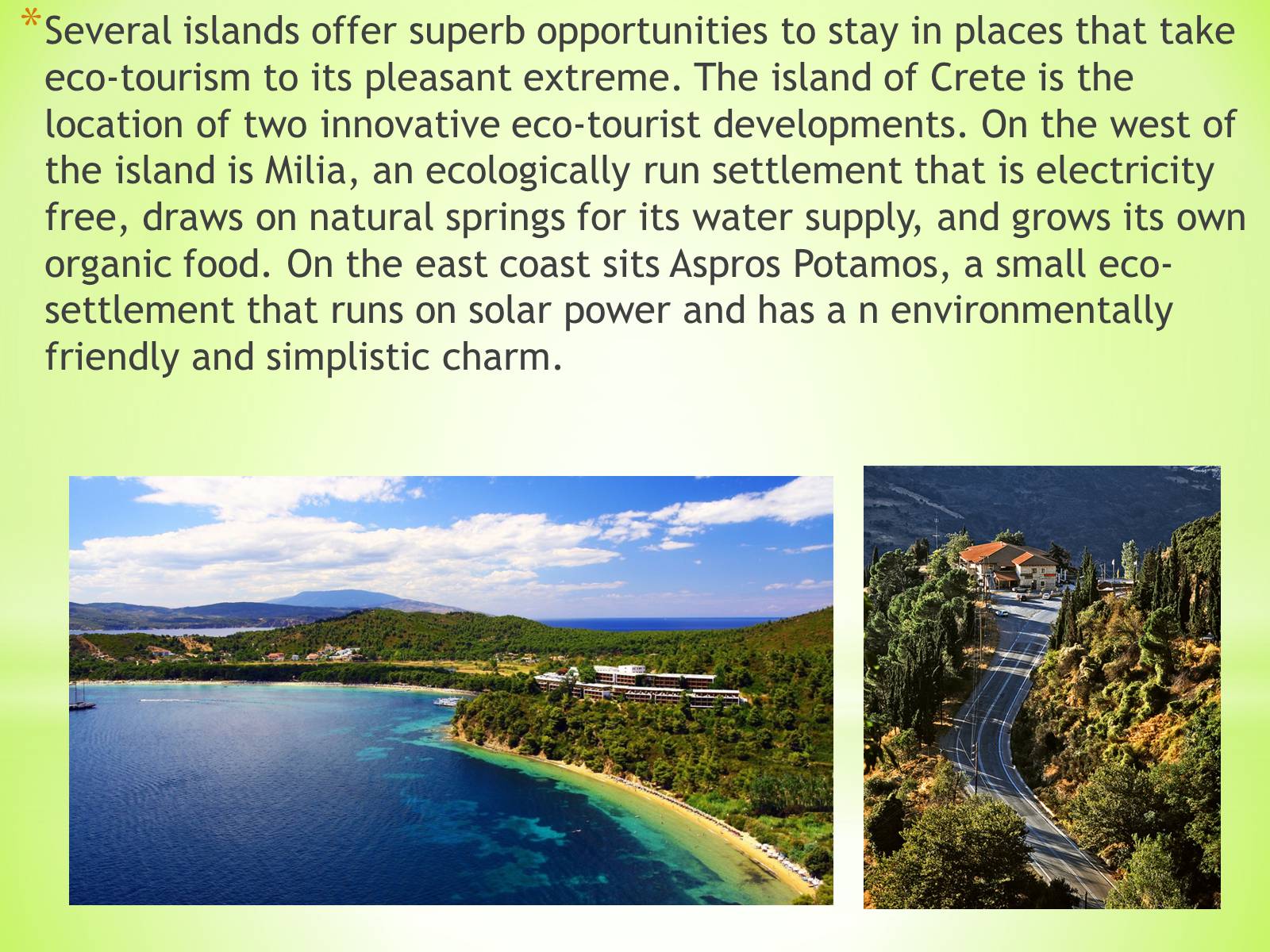
Several islands offer superb opportunities to stay in places that take eco-tourism to its pleasant extreme. The island of Crete is the location of two innovative eco-tourist developments. On the west of the island is Milia, an ecologically run settlement that is electricity free, draws on natural springs for its water supply, and grows its own organic food. On the east coast sits Aspros Potamos, a small eco-settlement that runs on solar power and has a n environmentally friendly and simplistic charm.
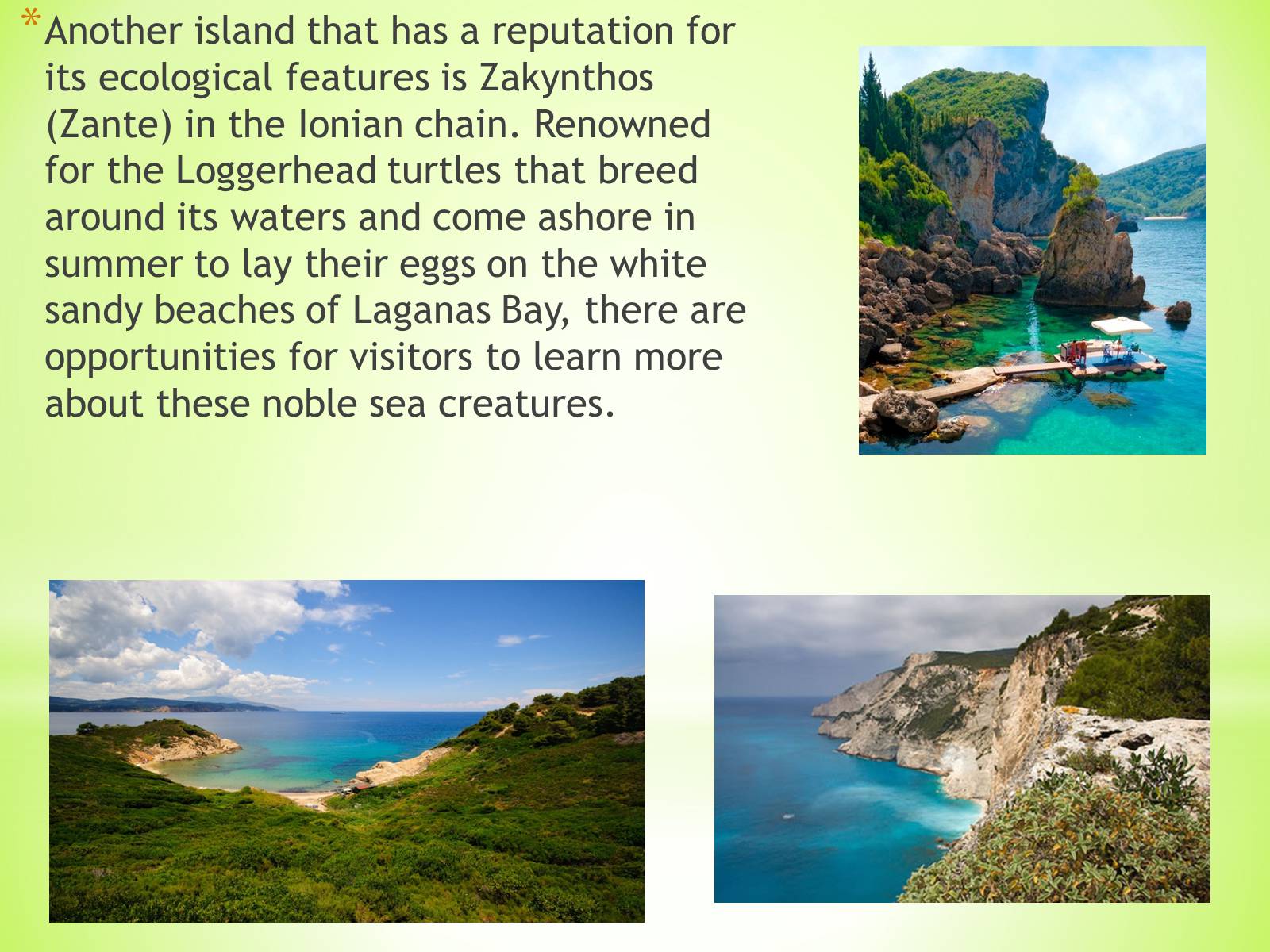
Another island that has a reputation for its ecological features is Zakynthos (Zante) in the Ionian chain. Renowned for the Loggerhead turtles that breed around its waters and come ashore in summer to lay their eggs on the white sandy beaches of Laganas Bay, there are opportunities for visitors to learn more about these noble sea creatures.